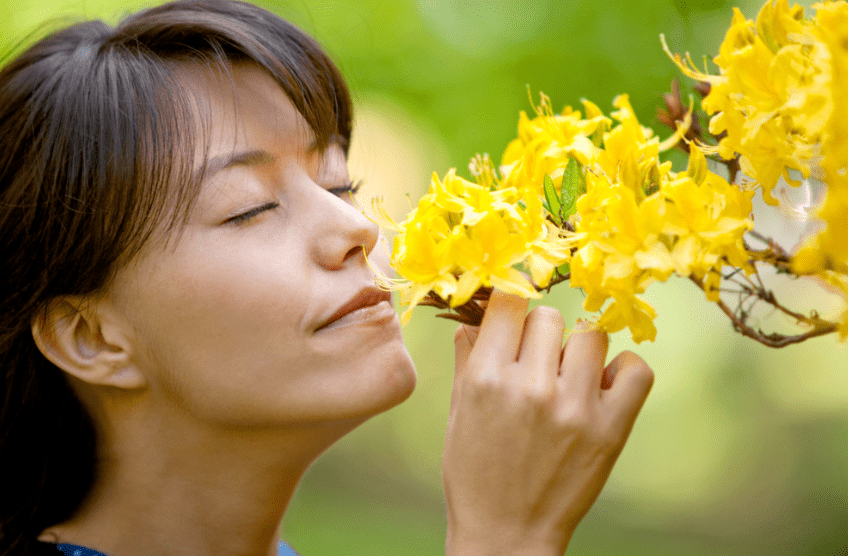
Raise a flower to your nose and inhale deeply. What happens so that you can identify which type of flower it is based on its scent? Scent molecules are traveling up from the olfactory receptors in your nose to your brain, and more specifically to the hippocampus and limbic system. Remember, those are the parts of our brain responsible for housing our memories and emotions.
This is why when we smell some things, we can be instantly hit with a wave of nostalgia or overcome with another intense emotion. Your brain is able to connect scent with specific memories and feelings.
Dr. Hanns Hatt is a researcher who has dedicated his life to studying the sense of smell. He tells The Eppendorf, “Scents which we perceive repeatedly will always be interlinked with those lived emotions, images and sounds. The first experiences with a fragrance are likely very different from person to person, which is why we all judge fragrances differently.”
Scent experiences and preferences vary greatly between people (and even cultures)—and the variation is partly because we all have different skill levels when it comes to our sense of smell. If you can’t identify that flower based purely on its smell, it doesn’t mean you have a “bad” sense of smell. Instead, it’s probably that your nose isn’t as “trained” as someone else’s who can ID the flower by scent. Or, some argue that it’s less the power of your nose and more because our culture lacks the rich vocabulary to describe scents.
Technically, the average nose can distinguish over a trillion different scents, according to the National Institutes of Health, but no one can actually name that many. Practice and experience, however, can help train the nose to correctly identify more scents. For example, Hatt says some perfumers can name up to 2,000 more scents than someone with an untrained, or undertrained, nose. It’s similar for sommeliers. "Sommeliers not only can identify the hundreds or thousands of different aromatic combinations in wine but also have trained themselves to understand what they mean in terms of what grape, region, and year is responsible for creating them," says Aaron Wisniewski, co-founder at OVR Technology.
If you want to improve your sense of smell, scent training is key. Smelling a new scent frequently enough creates new neuron pathways in your brain and, in time, your brain catalogs the scent and associates it with a memory. The more you practice smelling this scent, the quicker your brain can recognize and identify it. There’s another perk, too: your world becomes a richer and more immersive place.
.png?width=618&height=603&name=ovr_circle_w%20(1).png)



